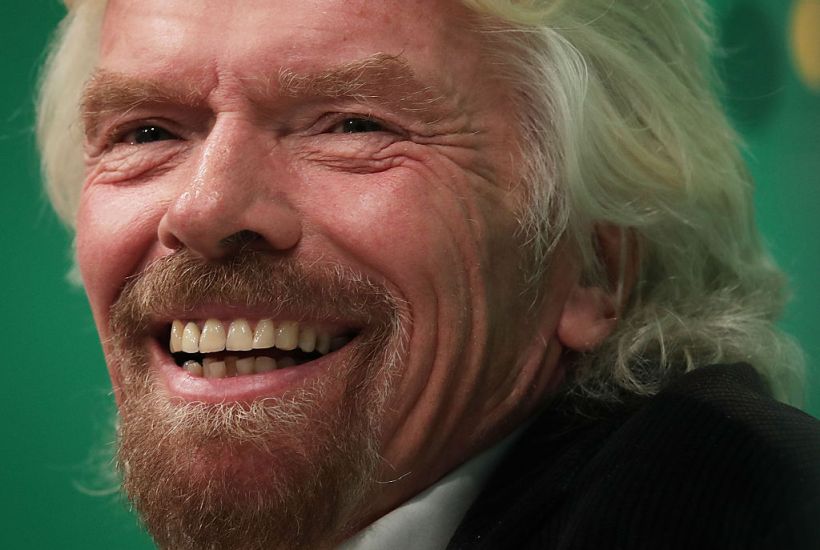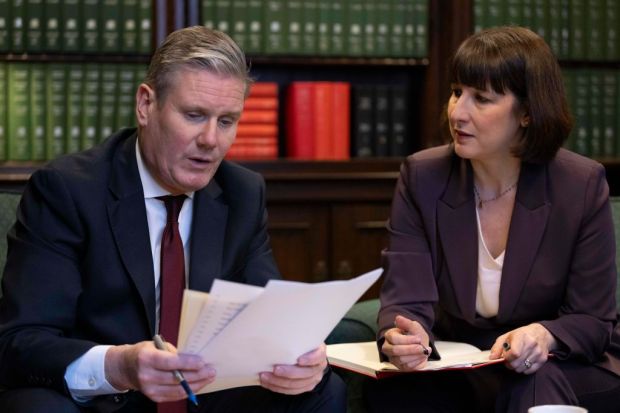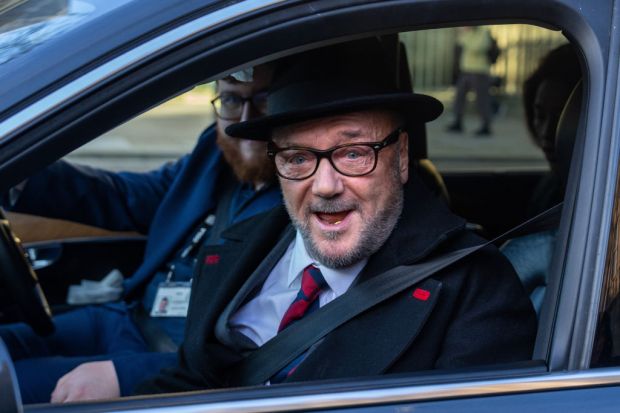Richard Branson is asking British taxpayers – a club he resigned from when he moved his affairs to the lax tax regime of the Virgin Islands – to bail him out. With an estimated fortune of £4.7 billion, he is richer than any man needs to be. Yet he still wants a country – whose health and emergency services his taxes are not supporting in their moment of greatest need – to lend the Virgin Atlantic airline £500 million.
The government has rejected Virgin Atlantic’s advances to date, but not for reasons you and I would cite. The Financial Times reports that officials turned down the airline’s initial bid because it had not done enough to show it had looked for private finance. If Branson fails to find a private lender, he can presumably come back. My guess is he will fail to get private finance because bankers would have to be madder than even their sternest critics believe possible to lend to an airline when so many flights are grounded. The government may well bail him out on second asking.
It could argue that Branson is not as rich as the papers are saying. His fortune depends on the value of his Virgin companies, which have collapsed. And he is offering his Caribbean island as collateral for the loan.
In any case, the government does not care about Branson’s morality. It cares about the Virgin Atlantic employees losing their jobs. Keeping them in employment is its sole economic concern. I am not disputing that saving their jobs is a moral concern too. Like so many of my contemporaries, I was on the dole in the 1980s, and the experience taught me that mass unemployment is the most debilitating of economic evils. My worry is that under the intense pressure of this crisis the government will not say one or more of the following:
- If you want British taxpayers’ money, you must pay British taxes
- The UK government will not bailout ‘British’ firms that use offshore havens to reduce their tax bills or even avoid them altogether
- If airlines want public money, they must commit to reducing greenhouse gas emissions
- If any listed company wants public money for its survival, it must offer the public a portion of its shares.
Economists warned, or rather they used to warn, of the ‘moral hazard’ of individuals and companies thinking they can pocket the rewards of success but let others bear the costs of their failure. Bankers take profits in good times, and the public bail them out in bad (as happened in the 2007/08 crash). Individuals and corporations move their wealth offshore, but believe the countries they abandoned will stand by them.
This crisis is so deep no one cares about morality now. The Federal Reserve Bank of Cleveland’s President, Loretta Mester, was clear about that last week when she said: ‘I don’t think we can be that concerned about those kinds of moral hazards.’ Which was perhaps just as well as she was talking about the US state propping up junk bond funds. It has guaranteed that companies like Ford which have been forced to issue high-interest debt are saved, and also that wealthy investors and fund managers, who were looking at huge losses on mortgage-backed securities, collateralised loan obligations and leveraged loans, escape as well.
Once again, you can understand why the US authorities want to stop carnage in the market. But the question remains: what does the taxpayer get in return?
We are seeing stories that would once have generated outrage pass in a blink of an eye. In December, the Competition and Markets Authority began an investigation into Amazon’s investment in Deliveroo. Regulators feared that a behemoth that already dominated home shopping would come to dominate home food deliveries as well. The CMA warned the deal could leave customers, restaurants and grocers facing higher prices and lower-quality services. Of course, the CMA and the regulators have now forgotten all their objections.
‘Deliveroo recently informed the CMA that the impact of the coronavirus pandemic on its business meant that it would fail financially and exit the market without the Amazon investment,’ it said. If the CMA didn’t back off, it would have a bankrupt business on its conscience.
Expect much more in this vein. Tech companies and others with cash will be able to buy up rivals on the cheap and regulators will not object because the costs of standing in the way of anything that keeps a business alive and workers in work cannot now be contemplated. But that does not mean that society cannot demand a price for the waiving of antitrust legislation.
Deliveroo riders are treated as self-employed. They log-on, waiting to see what orders, if any, they can pick up. Like so much of the ‘gig economy’, Deliveroo’s business model is based on putting the risk of doing business on the worker. Unions cannot negotiate for them. A Sunday Times investigation in 2019 found riders were in the black economy, paying no tax or national insurance. A sensible quid pro quo for allowing the Amazon deal would be for Parliament to legislate for better employment protections for zero-hour-contract and gig economy workers. Meanwhile the rest of us could vow to never again use the sickly euphemism ‘gig economy’ with its implication that exploited, insecure workers are the equivalent of rock stars on tour.
I wrote in the Observer this week about the dangers of a backlash if and when this pandemic ends. For all the national solidarity, the rich are less likely to suffer than the poor are, and whites are less likely to suffer than ethnic minorities. Meanwhile firms and individuals with money can swoop on distressed assets. As in 2008, governments’ one concern is to bail out. I am not criticising them, or at least not too much. You and I would probably think the same if we were in their place. That does not mean that blank cheques should be signed without a thought for what comes next, as they were signed during the 2008 financial crisis. If firms want public money, they should be publicly accountable and the public should at least get something in return.
If voters feel conned, then the mood will turn bitter. The moral hazard of this pandemic is that governments think they can forget about morality until it’s over.
Got something to add? Join the discussion and comment below.
Get 10 issues for just $10
Subscribe to The Spectator Australia today for the next 10 magazine issues, plus full online access, for just $10.





















Comments
Don't miss out
Join the conversation with other Spectator Australia readers. Subscribe to leave a comment.
SUBSCRIBEAlready a subscriber? Log in